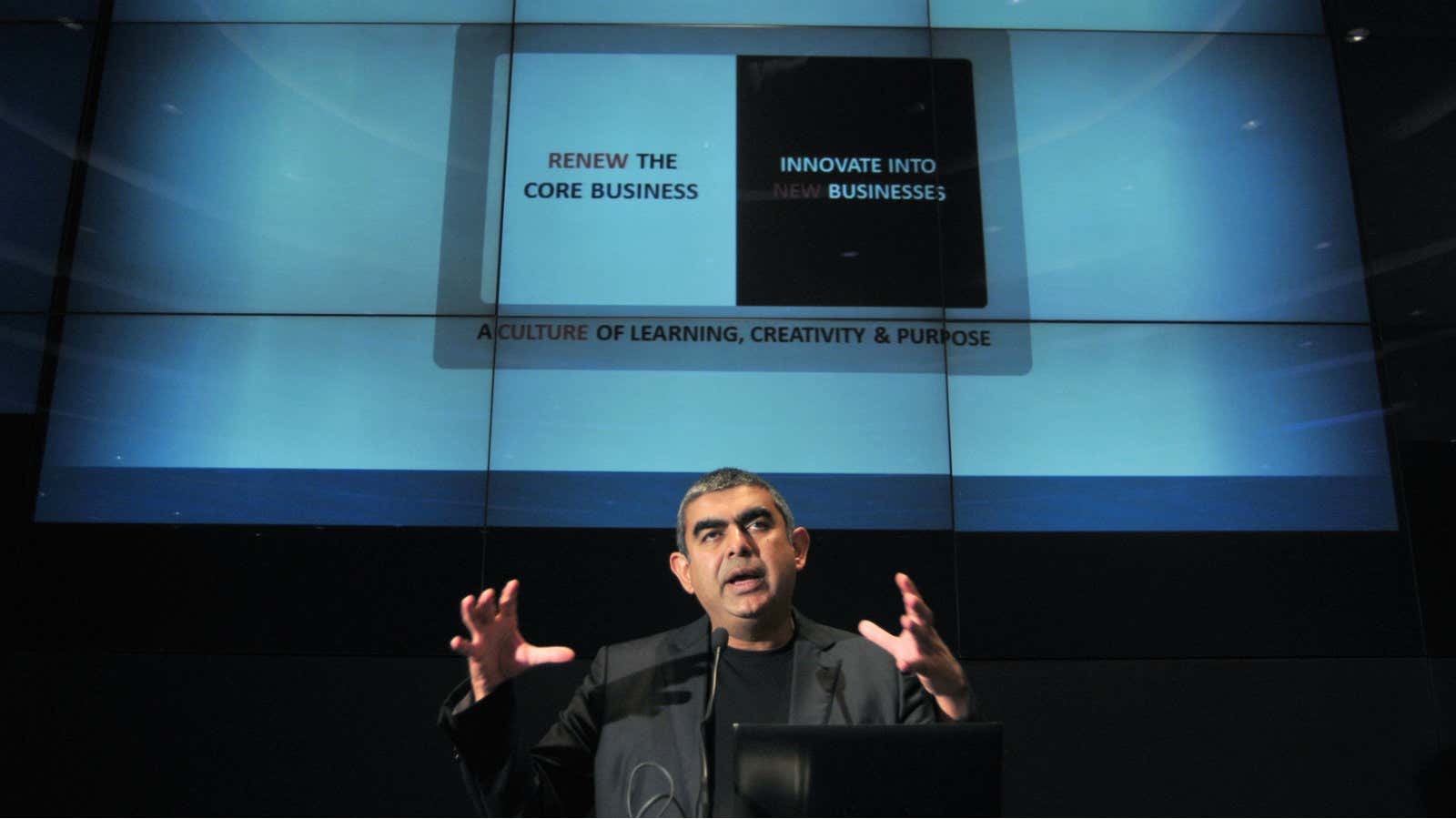Infosys CEO Vishal Sikka believes that India’s $150-billion IT industry must reduce its dependence on visas.
While the country’s second-largest software services provider is one of the main beneficiaries of the H-1B visas in the US, Sikka says the company should have a healthy mix of local and foreign workers.
“I myself am a US citizen and the role of visas in our industry has become too strong. We need to deliver value to our customers independent of visas…Of course we need to comply with regulations but we should have a mix of the best local and global talent,” Sikka said on April 13 while speaking to reporters during Infosys’s quarterly earnings announcement (pdf).
Sikka’s comments come at a time when the Donald Trump administration is making aggressive moves to clamp down on H-1B visas, which enable Indian companies to send cheap techies to the US. The US government wants companies to invest more in hiring American workers, which Sikka says is Infosys’s goal as well.
“The US is an important market for us and we are deeply committed to hire local talent and in various training activities. For instance we have developed large training centres in the US for Infosys and for others,” he added.
Infosys’s training programs, for instance, have trained more than 200,000 school students and thousands of teachers in computer science across the US, Sikka said. Infosys gets some 62% of its revenue from clients in North America.
Meanwhile, the firm reported a 0.88% drop in its revenue for the January-March period compared to the previous quarter. It also lowered growth guidance for the 2018 fiscal year. Sikka, in the earnings statement, said that the drop has been on account of “unanticipated execution challenges and distractions.” One of the challenges has been the visa issue.
Trump has implemented a slew of measures, including discontinuing premium visa processing and revising the eligibility criteria, to discourage companies from hiring foreign workers. IT firms have now started to work towards building alternatives to the visa issue by hiring more from US colleges, and training local talent.
